Bequeathing Thanksgiving
This Thanksgiving we’ll tell our four adult children about their great-nth-uncle, Edward Winslow, who at age 26 penned the only contemporaneous account of the first Thanksgiving in a December, 1621 letter: “Our harvest gotten in…so that we may rejoice together,”….Winslow then continued with a one sentence description about 53 Pilgrims and 90 local Wampanoag men “whom for three days we entertained and feasted” and who contributed 5 deer to their joint feast.
Winslow’s letter vanished from history for some 200 years until a copy was discovered in Philadelphia in 1820. His brief description helped inspire Sarah Hale – an abolitionist and early feminist who was also the author of “Mary Had a Little Lamb” – to campaign for three decades to make Thanksgiving a national holiday. Abraham Lincoln finally did so in 1863, hoping that it would help unite and heal a divided country.
For descendants of the Wampanoag, there is a darker side to this holiday. By the time the Pilgrims arrived at Plymouth Rock in 1620, the Wampanoag had been devastated by four years of plague brought by Europeans, and many of their survivors had been captured and enslaved. Still, they befriended the Pilgrims, taught them to plant corn, and how to fish and forage.
But as the Plymouth Colony grew, relations between the Wampanoag and Pilgrims deteriorated, and five decades later, Edward’s son, Josiah, then governor of the Plymouth Colony, prosecuted a three-year war against the Wampanoag. At the war’s conclusion, only 400 Wampanoag survived and their slain leader’s head was mounted and displayed for twenty years on a pike in Plymouth.
So on this Thanksgiving our four children, the Jewish nephews and nieces of Edward Winslow, Puritan governor of the Plymouth Colony, will borrow from a Jewish Passover tradition and spill drops of wine to acknowledge that our gratitude is diminished by the loss and suffering of the Wampanoag and other native Americans.
At the core of the Thanksgiving story is a simple, inspired lesson of how struggling immigrants were befriended by a native population and how cooperation trumped suspicion. Because almost all Americans descend from immigrants, it’s a story that continues to resonate even while it collides head-on with our current immigrant controversy.
How we solve the complicated issue of documented and undocumented immigrants within our borders may well be our litmus test as to whether the light in our Statue of Liberty will continue to shine. If we rip apart hardworking families, crush their dreams and send children back to towns where drug cartels send heads rolling down streets, then we’ll have betrayed the countless generations of immigrants who’ve built our country and fought to preserve its ideals.
The American experiment is still young. Any American centenarian alive today will have experienced at least 42% of our country’s history. From that long perspective they can tell us our American democracy is more fragile than we think. It’s not enshrined in law so much as it’s evidenced in our words and actions. Democracy requires vigilance and hard work. It can collapse in a fortnight.
So on this Thanksgiving our family will spill additional drops of wine to thank those who have fought and sacrificed to preserve our democracy, some with guns and others with words, deeds and ideas. Some sacrificed their lives, others their reputations and careers.
Sacrifice. Cooperation. Generosity. These days these traits seem to be on the Endangered Behavior List. A country that celebrates individual gain at the expense of others is a country chipping away at the foundation of democracy. Ronald Reagan’s 1980 question, “Ask yourself are you better off than you were four years ago?” may have been the right question to win an election, but it’s the wrong question for guiding a democracy. Whatever happened to “we”?
The man Ronald Reagan defeated for the presidency had this to say about “we”: “The measure of a society is found in how we treat our weakest and most helpless citizens.” How are we measuring up, world?
So on this Thanksgiving our family will spill additional drops of wine because our collective good fortune is diminished by the suffering of our fellow humans across this planet who live in hunger or under tyranny. Who flee from bombs and bullets and don’t know whether they’ll live to see another sunrise.
As the rest of us rejoice on this Thanksgiving, let’s cherish each other’s company and express gratitude for the bountiful blessings we’ve been handed from previous generations, but then let’s pause and ask, “Will future generations express similar gratitude for our actions? Will they thank us for the world we’ve bequeathed to them?”
Or will they curse us because as a result of our collective gluttony, short-term perspectives and grasping greed we’ve left them a world with rising intolerance, rising temperatures, rising seas, rising rates of disease and depleted resources?
Immigrants embody the ethos of delayed gratification. They work hard and sacrifice in order to improve life for the next generation. It’s about building for the future instead of consuming the future….instead of robbing the future. We can learn from them.
This Thanksgiving, let us revel in thankfulness, but most important – let us start paying it forward.
-David Moss, MD. Founder of The Illumignossi Project

